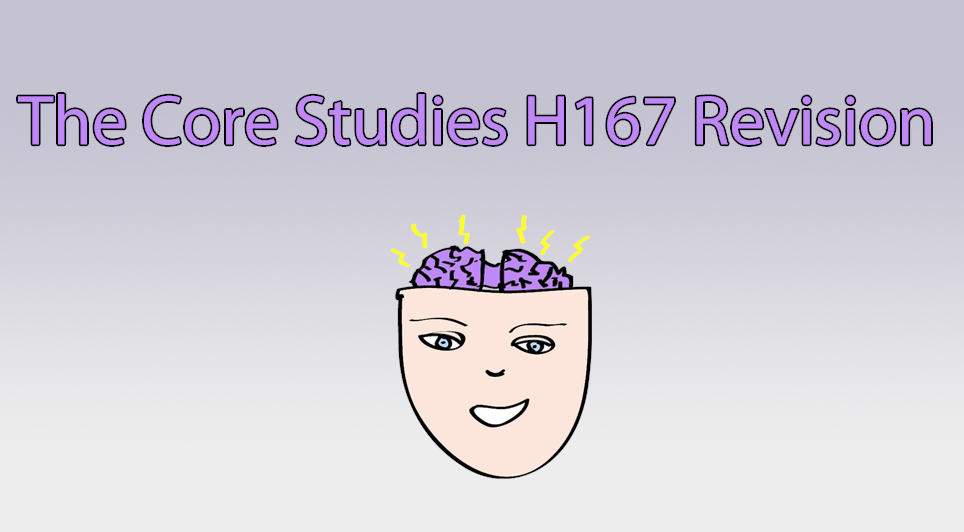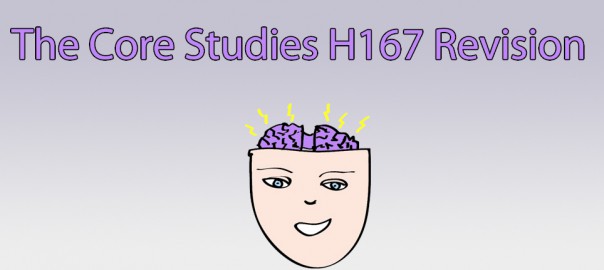Here you will find all the revision materials you need for OCR AS Psychology H167.
Understanding the categories of each study is vital to succeeding in your OCR AS Psychology exam: Psychological themes in the core study. In the AS H167 exam, there are 10 studies, divided into five areas, with a classic and contemporary study in each area. Each individual area has a theme, and it is vital to your success in this exam that you learn each study and its area and corresponding theme.
Use this page as a hub for your revision.
The H167 exam has 75 marks and lasts for 1 hour and 30 minutes. This exam contributes to 50% of your AS Psychology grade. The AS exam consists of 3 sections:
- Section A – Mainly knowledge about the core studies
- Section B – Areas perspectives and debates
- Section C – Areas perspectives and debates
Section C is the most challenging part of the exam. I recommend writing the H167 exam in reverse. Start with Section C, then Section B and then Section A.
Psychological Themes in the Core Studies:
Social Psychology – Responses to people in authority
Classic Study: Milgram (1963) – Obedience to Authority
Contemporary Study: Bocchiaro et al., (2012) – Disobedience and whistle-blowing
Cognitive Psychology – Memory
Classic Study: Loftus and Palmer (1974) – Eyewitness Testimony
Contemporary Study: Grant et al (1998) – Context-dependent memory
Biological Psychology – Regions in the Brain
Classic Study: Sperry (1968) – Split brain study
Contemporary Study: Casey et al (2011) – Neural correlates of delay of gratification
Developmental Psychology – External Influences on Children’s Behaviour
Classic Study: Bandura et al (1961) – Theme: Transmission of aggression
Contemporary Study: Chaney et al (2004) – Theme: Funhaler Study
Individual Differences – Understanding Disorders
Classic Study: Freud (1909) – Little Hans
Contemporary Study: Baron-Cohen et al (1997) – Autism in adults
References
Milgram, S. (1963). Behavioral study of obedience. The Journal of abnormal and social psychology, 67(4),
Bocchiaro, P., Zimbardo, P. G., & Van Lange, P. A. (2012). To defy or not to defy: An experimental study of the dynamics of disobedience and whistle-blowing. Social Influence,7(1), 35-50.
Loftus, E. F., & Palmer, J. C. (1974). Reconstruction of automobile destruction: An example of the interaction between language and memory.Journal of verbal learning and verbal behavior, 13(5), 585-589.
Grant, H. M., Bredahl, L. C., Clay, J., Ferrie, J., Groves, J. E., McDorman, T. A., & Dark, V. J. (1998). Context-dependent memory for meaningful material: Information for students. Applied Cognitive Psychology, 12(6), 617-623.
Sperry, R. W. (1968). Hemisphere deconnection and unity in conscious awareness.American Psychologist, 23(10), 723.
Casey, B. J., Somerville, L. H., Gotlib, I. H., Ayduk, O., Franklin, N. T., Askren, M. K., … & Glover, G. (2011). Behavioral and neural correlates of delay of gratification 40 years later.Proceedings of the National Academy of Sciences, 108(36), 14998-1
Bandura, A., Ross, D., & Ross, S. A. (1961). Transmission of aggression through imitation of aggressive models. Educational Psychology in context. Readings for future teachers. SAGE Publications, Thousand Oakes, 57-66.
Freud, S. (1909) Analysis of a phobia of a five-year old boy. The Pelican Library, Vol. 8, Case Histories, p. 169-306
Baron‐Cohen, S., Jolliffe, T., Mortimore, C., & Robertson, M. (1997). Another advanced test of theory of mind: Evidence from very high functioning adults with autism or Asperger syndrome. Journal of Child Psychology and Psychiatry, 38(7), 813-822.
Further Reading
Autism and Asperger Syndrome (The Facts)
Case Histories I: ‘Dora’ and ‘Little Hans’ (The Penguin Freud Library, Vol. 8)
Social Learning Theory (Prentice-Hall Series in Social Learning)
The Marshmallow Test: Understanding Self-control and How To Master It
Beyond a World Divided: Human Values in the Brain-mind Science of Roger Sperry
The Myth of Repressed Memory: False Memories and Allegations of Sexual Abuse
Obedience to Authority: An Experimental View
Behind the Shock Machine: The Untold Story of the Notorious Milgram Psychology Experiments
The Lucifer Effect: How Good People Turn Evil
Psych Yogi’s Top Ten Psychology Revision Tips for the A* Student


this helped, thanks
Very informative, thank you!
Very useful for AS unfortunately no core studies from A2, would be good if this was added at some point soon!
Hi,
The A2 studies are on the H567 page.